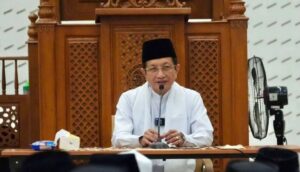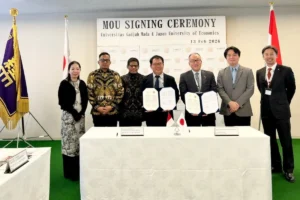President Jokowi names Five National figures as national heroes

Jakarta, The Gulf Observer: President Joko Widodo (Jokowi) named five national figures as national heroes this year at a ceremony at the State Palace here, Monday.
The five figures are presidential doctor H. R. Soeharto of Central Java; royalty Paku Alam VIII of Yogyakarta, doctor Rubini Natawisastra of West Kalimantan; independence fighter Salahuddin bin Talibuddin of North Maluku; and Muslim politician and cleric Ahmad Sanusi.
Presidential Decision No. 96 TK of 2022 on the conferment of national heroes status enacted on November 3 is the legal basis for the bestowment of the status.
The ceremony was presided over by the president, who, after the presidential decision on national heroes was read, handed over the national heroes’ recognition certificate to descendants of the national heroes present at the palace.
Earlier, Coordinating Minister of Political, Legal, and Security Affairs Mahfud MD stated that Jokowi concurred with the names of national heroes proposed by officials.
He explained that the first figure, H.R. Soeharto, unrelated to the second Indonesian president, was the private doctor for first president Soekarno and first vice president Mohammad Hatta, who had actively contributed to supporting national independence and post-independence development.
“He contributed to the development of an Islamic department store, the National Monument, the Istiqlal Mosque, and Jakarta hospitals, as well as one of the founders of IDI (Indonesian Medical Association),” Mahfud stated.
The second figure is Pakualaman Duke Paku Alam VIII, who reigned from 1937 to 1989, and, along with Hamengkubuwono IX of Yogyakarta, advocated for the inclusion of Yogyakarta as part of Indonesia.
“A day after (the independence proclamation), he declared the inclusion (of Yogyakarta) to Indonesia, and Yogyakarta had served as the second national capital during the 1946 Dutch aggression,” the coordinating minister noted.
Mahfud remarked that the third figure is Rubini Natawisastra of West Kalimantan, who as a doctor, committed to humanitarian duties during the independence struggle. He, along with his wife, had been sentenced to death by the Japanese for their struggle for Indonesia, he noted.
The fourth figure, Salahuddin bin Talibuddin of North Maluku, was granted national hero status for his lifelong commitment to fight for and contribute to Indonesia under Pancasila.
“He was once exiled to Boven Digoel in 1942 and Sawahlunto from 1918 to 1923,” the coordinating minister remarked.
The fifth figure is Ahmad Sanusi of West Java, who as a Muslim cleric and member of the Investigating Committee for Preparatory Work for Independence (BPUPKI), advocated a compromise in the national foundation, which finalized the national ideology, Pancasila, he remarked.


